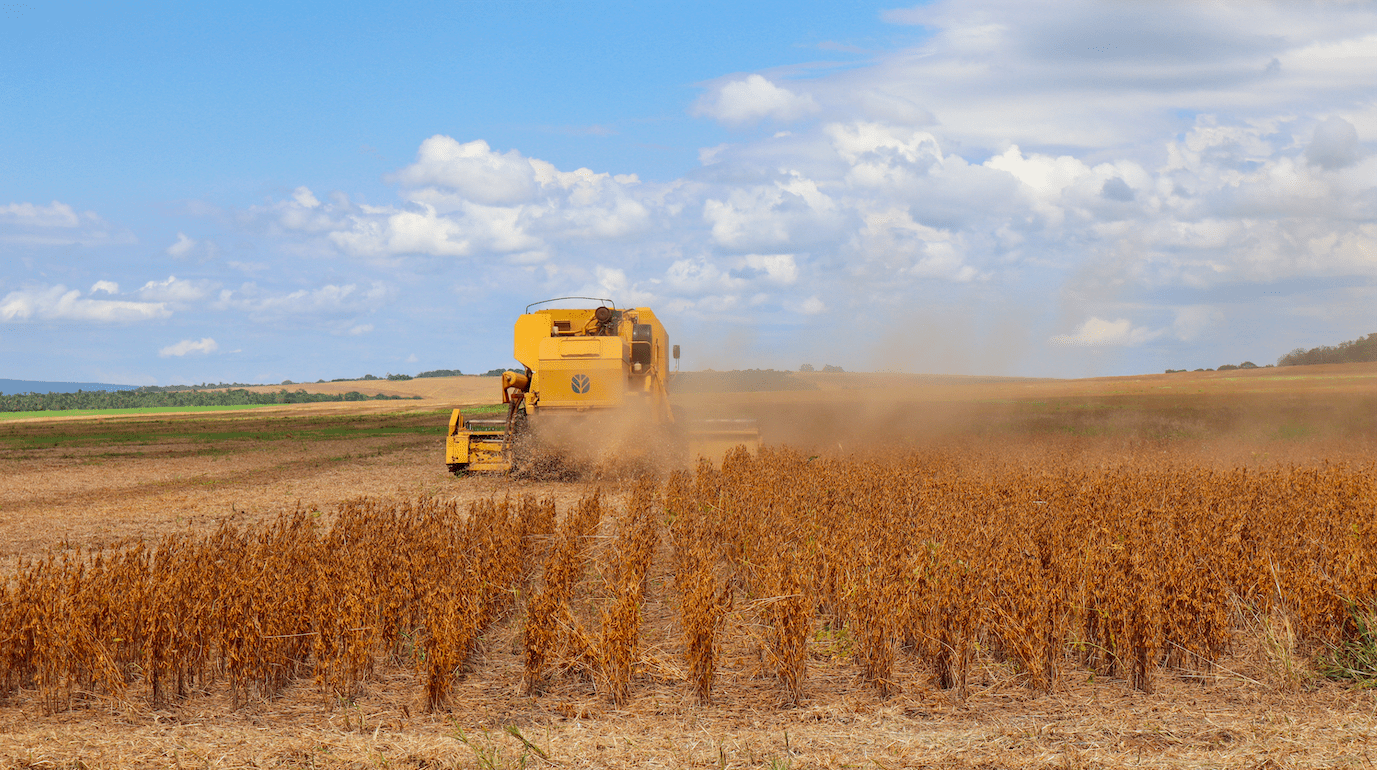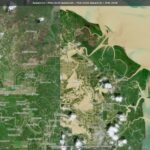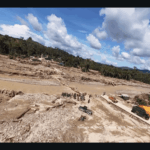Figure 1: Brazilian contested farm Brasília do Sul with nearby facilities of Cargill and Bunge
Source: AidEnvironment, based on INCRA, Sicarm 2022, Funai 2020. Note that ADM was not mentioned in the investigative research.
Earthsight and De Olho nos Ruralistas, two non-profit organizations in the UK and Brazil, recently found that Cargill and Bunge are sourcing soy from Brasília do Sul, a 9,785-hectare soy farm in Mato Grosso do Sul (MS) that is currently disputed. Agribusiness allegedly seized the land from its original residents – the indigenous community Guarani Kaiowá.
These findings are particularly important because of upcoming EU regulations, which will put forest-risk commodities such as soy and cattle under increased scrutiny for deforestation and human rights violations.
The two trading giants are the major exporters of soy to the European Union and the UK. Between 2014 and May 2022, Bunge reportedly exported over 17 million metric tons (MT) of soy to the EU. Spain, France, and Germany were the major recipients. Cargill exported more than 13.7 million MT, with top destinations Spain, the Netherlands, and the UK.
The traditional community of Guarani Kaiowá claim agribusiness displaced them decades ago. Funai, the Brazilian federal agency tasked with protecting indigenous rights, has recognized Takuara as a traditional indigenous land. This would make agribusiness activity on it illegal according to the country’s constitution.
However, none of the court rulings issued over the years have been conclusive. Final demarcation of the area is still under consideration. Apart from land grabbing, the contested farm is also linked to the murder of Guarani Kaiowá leader Marcos Veron.
Cargill, which confirmed a supplier relationship with the contested farm, pointed to compliance with Brazilian law in response to the allegations:
“We have confirmed that the process to demarcate indigenous land in the mentioned area of Brasília do Sul farm is not regulated yet, so there’s no illegality on the local produce.”
This response (“human rights violations may have been found, but our sourcing is not illegal”) could undermine the effectiveness of the upcoming regulations. As Earthsight says:
“Cargill could have adopted a do-no-harm policy and cut ties with any farms involved in unresolved land disputes with indigenous and other traditional communities, instead of clinging on to misguided legal interpretations and making a mockery of its own human rights commitments.”
More information is on the Chain Reaction Research website.





